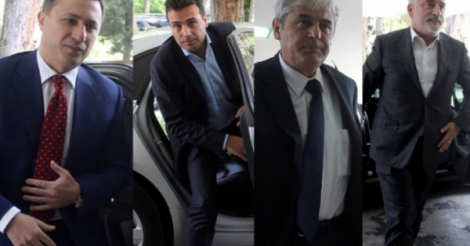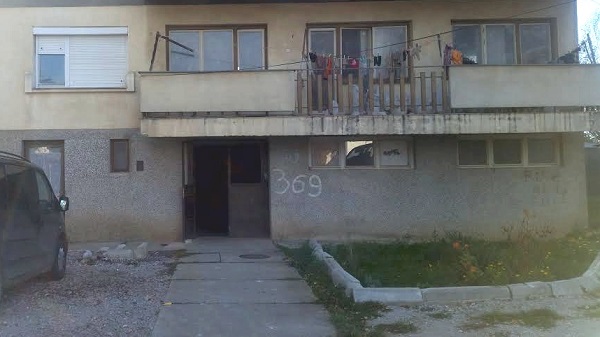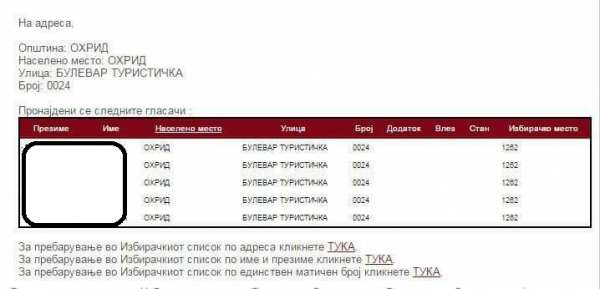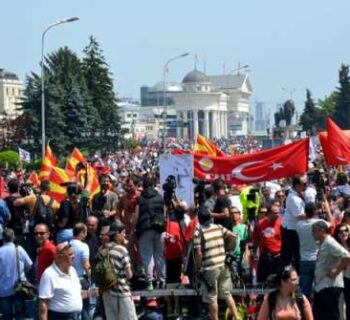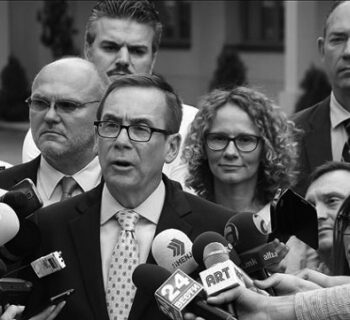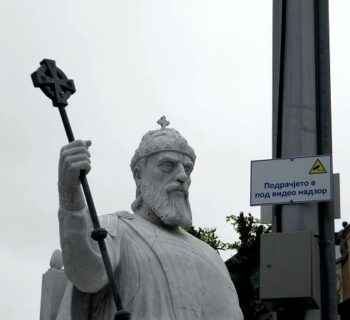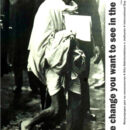Today in Macedonia, the election campaign began for early parliamentary elections that are scheduled for December 11. A new government will be elected in three weeks. The elections are of historic importance for the citizens and the country, almost as much as the referendum for independence in 1991.
The elections are to put an end to the longstanding political crisis in the country, which culminated with the publication of the “bombs” by opposition leader Zoran Zaev, in February last year. The efforts of the international community to pull the country out of the crisis in a democratic way and to return it back on the path of Euro-Atlantic integration, resulted in the signing of the Przino Agreement. Later, the leaders of the four most influential parties on the Macedonian political scene since the referendum, from the Macedonian bloc: Zoran Zaev (SDSM) and Nikola Gruevski (VMRO-DPMNE) and from the Albanian bloc: Ali Ahmeti (DUI) and Menduh Taci (DPA), also signed an annex to the Agreement, according to which early parliamentary elections are to be held on December 11.
The elections are to put an end to the abuses of power and criminal acts, which are a subject of investigative and court procedures stemming from the work of the Special Prosecutor’s Office (SPO), and are also to open a new page in Macedonian democracy.
Parties begin election campaign early
The main political parties, signatories to the Przino Agreement, began the election campaign ahead of time, even though according to the Electoral Code it begins today. Politicians, both those who seek to maintain their power and those who seek to win power, have been having meetings with citizens, holding press conferences at which party programs are promoted, have been putting up electoral advertising materials with candidates and MPs, with direct violation of the Electoral Code.
CIVIL – Center for Freedom, in this context, is demanding from the political entities, participants in the electoral process, strict adherence to the legal regulations, and it will inform the public of any such violations.
Political party representatives yesterday signed the Code for fair and democratic elections, without waiting for former Prime Minister and President of VMRO-DPMNE, Nikola Gruevski. He signed the Code by himself after being late 15 minutes as usual, with which he committed, on behalf of the party and the coalition, for these early parliamentary elections to be conducted in a fair and democratic manner. Elections will be regular also according to opposition leader Zoran Zaev, but it depends on the attitude of the ruling party and of the government on whether they will be fair and democratic.
Today and tomorrow, a six-member delegation of the Parliamentary Assembly of the Council of Europe will be in Macedonia. It will assess the political climate ahead of the early parliamentary elections. The representative of the PA of the Council of Europe will meet with representatives of political parties, of the SEC, the SPO, diplomatic corps and of the civil society sector.

1.784.524 citizens can vote for new government
According to the President of the State Election Commission (SEC), Aleksandar Cicakovski, the democratic development of a society depends on elections that respect the principles of democracy, while elections that are not regular endanger the right to vote. Following the “clearing” of the Voters Register from the so-called “phantom” voters, 1,784,524 citizens are now registered with the right to vote at these elections.
However, even though the deadlines for regulating the anomalies in the Voters Register have ended, and Macedonia is on the verge of elections, there is still a huge number of “phantoms”. Citizens from all over Macedonia contact CIVIL every day, who still report “phantoms” in their homes, at their home addresses, in spite of the numerous reports to the SEC, and the closing of the Voters Register. According to some reports, there are some settlements in the country where the number of phantoms is even a quarter of the total number of citizens! CIVIL has not received a single response from the SEC for such cases, despite its insisting.
The opposition considers that with the clearing of the list, the number of phantoms will not impact the election results significantly.
The applications that have been submitted to the SEC by citizens who have been removed from the list, although among them are public figures who have never changed their addresses, speak of the unsatisfactory condition of the Voters Register.
As of today, citizens can report any violation of their voting right at the Office of the Ombudsman, on the free phone line 0800 54321, which will be operating from 08:00 – 16:00h every day.
True democratic pluralism cannot be achieved just by declaratively proclaiming it, but rather it requires primarily responsibility and accountability by all, and especially of the executive government, was emphasized by the Office of the Ombudsman.

Special Prosecutor’s Office targets “eavesdroppers”
The Special Prosecutor’s Office (SPO), just before the start of the election campaign, announced its latest investigation, the case titled “Target”, which concerns the creators and main actors in the “Wiretapping” affair. The SPO submitted charges against 10 people, including former managing personnel of the Administration for Security and Counterintelligence (UBK), directly accused for “abuse of official position and of authority”, which have endangered the privacy and business interests of several thousands of citizens by eavesdropping on 5,827 phone lines in the period 2008 to 2015. The illegal wiretapping has been carried out through the abuse of the communications surveillance system, thus, violating the human rights and freedoms of thousands of citizens.
Politicians, journalists, businessmen…have been illegally wiretapped, members of the ruling party and of the opposition, current and former political figures, with the exception of leader and former Prime Minister Nikola Gruevski, whose phone lines have not been the target of the “eavesdroppers”.
Businessmen and journalists announced lawsuits and will seek damage for violation of rights and interests. According to some estimations, the illegal surveillance will cost the country from 30 to 300 million euros in damage that it will have to pay to these citizens.
The “Target” case has caused a storm of reactions in the Macedonian public. Citizens’ doubts are increasing, and some even go so far as to doubt whether this governing structure is still following and will follow their steps until the elections.

Media have significant role in the election process
For fair, democratic and credible lections, the Macedonian media will also have a great role. The Ad-hoc body, a body established in accordance with the Przino Agreement, and the Agency for Audio and Audiovisual Media Services will be monitoring the work of the media, especially in terms of balanced reporting and adherence to the Electoral Code in relation to election campaign coverage and monitoring the election process.
The Council for Media Ethics also responded in this context, urging for full professional responsibility in journalism, promoting a participatory political process and continuous access of the public to relevant and reliable information on the start of the election campaign. The Council for Media Ethics stressed the need for balanced and accurate reporting, so as to enable the public to understand and participate in the political process.
Monika Taleska
 Македонски
Македонски Shqip
Shqip English
English
